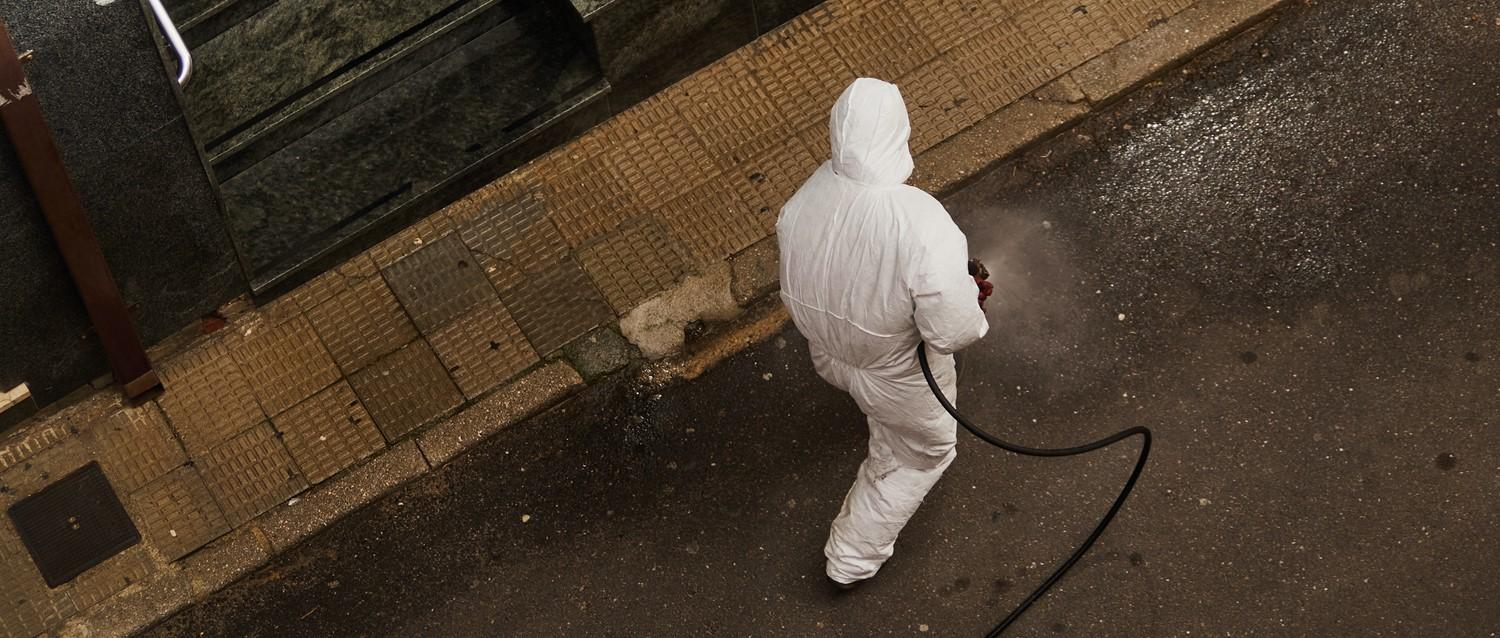
Are we prepared for another pandemic?
Peer reviewed by Dr Sarah Jarvis MBE, FRCGPLast updated by Ellie BroughtonLast updated 12 Jul 2021
Meets Patient’s editorial guidelines
- DownloadDownload
- Share
- Language
- Discussion
COVID-19 is, for many of us, our first pandemic - and we're hoping it's our last. Experts explain why lessons learned this year, at every level, show us how to prevent the next one.
In this article:
Although shattering epidemics - AIDS, swine flu, Ebola, SARS, flu - have been a part of our lives for years, none of us was prepared for COVID-19, and the incredible reach it had into our lives. In 2019 the Global Health Security Index warned that 'no country is fully prepared for epidemics or pandemics', and a study published in PLoS One last year found that global responses to COVID-19 underscored what the Index predicted.
The UK was no exception. To date, over 128,000 people in the UK have died with COVID-19. This country has the world's seventh highest death toll - not just that, but despite our wealth, we have one of the world's highest per capita mortality rates.
Evidence shows that environmental damage regularly exposes people to new pathogens, making it more likely that humans will catch more animal diseases (or 'zoonoses'). Last year the UN warned about the rising risk from zoonoses, in particular linking it to the 260% increase in meat production in the last 50 years.
In spite of all our surveillance, containing outbreaks of diseases like COVID-19 remains extremely difficult.
Continue reading below
What's being done to prevent future pandemics?
In April 2021 the UK launched a new Pandemic Preparedness Partnership (PPP) and in the same month, opened a new public health agency, the UKHSA, which took over Public Health England's 'protection' functions (preparing, monitoring and responding to new threats like pandemics). The next month, the prime minister announced that the UK would provide support to the WHO's new 'global pandemic radar' - a triple whammy.
But research leaders have warned that new initiatives are not a substitute for essential research, and that new and sudden cuts to public funding have put us on the back foot.
This year the UK's central research funder, UKRI, passed on massive funding cuts to both new and existing projects - meaning some projects were cancelled after years of work and investment. Some of the projects studied zoonoses including COVID-19. For example, researchers at Oxford who support a COVID-19 surveillance project in Brazil lost a quarter of their funding.
UK aid funding in the past has produced tangible benefits for this pandemic - for instance, it went into the UK Vaccine Network's development of a vaccine for MERS that became the Oxford/AstraZeneca vaccine.
The impact of cuts
Professor Matthew Baylis is a veterinary epidemiologist at the University of Liverpool. When cuts were first reported last year, he said it seemed 'unthinkable' that the Government would cut projects they had already funded.
One of his projects saw 83% cuts but when COVID-19 hit, because Prof Baylis's team had saved money previously, they were able to commission original research projects in East Africa, such as research into viral residue on PPE, and how COVID-19 affected local availability of fresh food.
"Our project is one of very few, if not the only one working in this space at all, and it's a tiny amount of money," Prof Baylis explains. "But it means that the UK is trying to build links and collaborations in these countries."
An open letter by academics against the cuts argued the same: that this pandemic shows exactly why we need a global approach.
"The pandemic has pointed to the fundamental role that inequalities and poverty have to play in amplifying negative outcomes from external shocks such as epidemics, resource shortage, hazardous events or conflict," authors wrote. "It has evidenced the value of this integrated approach, both to the UK and to our international partners."
Is the NHS ready for the next pandemic?
The UK's COVID-19 vaccination campaign has gone from strength to strength, with over 85% of the adult population having had one or both jabs. But last month a report by the Health Select Committee on the the force behind the campaign warned that burnout was now at emergency levels in the NHS workforce.
And little has been done to tackle either the workforce shortage, or the pressures on retaining existing clinicians. After the public spent every Thursday last summer applauding the workforce, in March the Government produced a dismal 1% pay rise offer for staff (Unite recommends a 15% pay rise, and the Royal College of Nurses 12.5%) which represents a pay cut in real terms. Unions and clinicians themselves have been consistently clear about the consequences if the Government fails to pay and protect the existing workforce.
Continue reading below
An inquiry into the COVID-19 response
UK health leaders, including Christina Marriott, the chief executive of the Royal Society for Public Health, continue to call for an independent public inquiry into the UK Government's COVID-19 response. With quicker, more decisive action, Marriott said, the human cost could have been far lower.
She was also concerned about the foundation of the UKHSA. "According to the Government, we need a dedicated team to respond better to future pandemics and health threats," she says. "Given this transition is taking place while the pandemic is still ongoing, there is a real risk that this will come at a cost to the public health workforce and the delivery of their vital work.
"We want to see UKHSA learn from the lessons of COVID-19. But this cannot happen without a thorough and independent inquiry, and a corresponding plan of action. The longer the Government takes to investigate the COVID-19 response, the less effective our continued response to the virus will be. History may be sympathetic on those leaders who did not get it right the first time - it will not be so generous on those who continue to make the same mistakes."
Authors of the 2020 study in PLoS One added that its panel 'should consider reassessing the GHS index frequently, including the potential incorporation of the effect of leadership in subsequent reports'.
Can we vaccinate everyone?
One initiative that would improve global preparedness - not to mention recovery from COVID-19 - is the People's Vaccine campaign. The people behind the campaign see two big problems for the global COVID-19 response: first, an inadequate supply of vaccines, and second, unequal allocation.
Dr. Mogha Kamal Yanni is a policy advisor to the People's Vaccine Alliance, and has previously acted as a policy advisor to the UN's AIDS taskforce.
"For a number of reasons, we want a similar kind of model the NHS has - free at the point of use - in the rest of the world," she explains. "One is the moral imperative - you can't treat some people and leave the others. The second, for people in the UK, is self-interest. So far, we've been lucky with the Delta variant that the current vaccines are still effective, but we don't know what will come tomorrow." As long as the virus is circulating freely and very widely, mutations, including 'vaccine-escape' variants against which vaccines don't provide protection, are more likely.
After a year of outspoken support for our own free public health service, it's little wonder that the campaign has won support here. Campaigners also recognise that working out how to vaccinate global populations now will give us a blueprint for future pandemics.
Continue reading below
The next pandemic
All this aside, the UK is still struggling to manage COVID-19. As the Delta variant spreads and daily cases double, now the UK's chief medical officer has joined a warning call about a fourth lockdown. How we cope with COVID-19, this winter and in 2022, will set the bar for how we prepare and cope for whatever comes next.
Patient picks for General information

COVID-19
Does diabetes increase your risk of coronavirus?
We know that certain underlying health conditions increase your risk of having a more severe case of coronavirus. So do people living with diabetes need to take extra precautions to keep themselves safe during the pandemic?
by Milly Evans

COVID-19
COVID-19: how to stay safe at work
In a bid to get the economy moving and return some normalcy to day-to-day life, the government is encouraging those who can't work from home to go back to work. If you're back at the office or having to catch public transport every day, how can you stay safe?
by Andrea Downey
Continue reading below
Article history
The information on this page is peer reviewed by qualified clinicians.
12 Jul 2021 | Latest version
12 Jul 2021 | Originally published

Ask, share, connect.
Browse discussions, ask questions, and share experiences across hundreds of health topics.

Feeling unwell?
Assess your symptoms online for free
Sign up to the Patient newsletter
Your weekly dose of clear, trustworthy health advice - written to help you feel informed, confident and in control.
By subscribing you accept our Privacy Policy. You can unsubscribe at any time. We never sell your data.